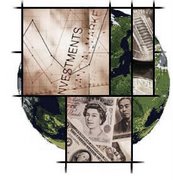
What is GST?
At the core of this year's budget debate is the Goods and Services Tax (GST) hike. What exactly is a GST? A common understanding is that when you, as the consumer, purchase things, you pay the GST together with the price of the purchased products. This is a misconception. GST is in fact the responsibility of the seller. The seller is entitled to pass on the costs of GST to the consumers. But there are exceptions. Some businesses, for instance like NTUC Fairprice, opt to absorb the GST. Thus, when a consumer buys things, the consumer pay the agreed fee for the goods and services, the seller provides the goods and services for the agreed amount. The seller then pays the GST out of that agreed price to the tax authority.
Issues of the Heart
The GST issue is a highly emotive one. In HK, many protests against the implementation of GST had caused thousands to throng the streets with signs reading "NO to GST!". In Singapore, our reaction, if any, is far less dramatic. Feedbacks range from rumblings on the blogs, kopitiam talks to occasional sighing. But what exactly is the issue?
Not only because all of us are consumers in one way or another. GST hike is especially debatable because it involves more than just facts and figures. It affects consumption pattern, business decisions and ultimately quality of living. Questions like these are commonly heard: Is the GST hike fair for the poor? Are we robbing the poor to pay the poor? Are there better ways of raising government revenue? Economics students would call these issues that appeal to our value-system (not just rationality) - Normative issues. They are issues of the heart, not just the mind.
The Heart of the Issue
To resolve normative issues mentioned is really beyond the scope of this blog. There are simply too many interest groups and complex repercussions involved. But, one good way to go to the heart of the issue is to understand the regressive nature of the GST.
When we say that the GST is a 'regressive tax', what it means is that when such a tax is imposed on all goods, a larger proportion of the income of the poor is taxed through their consumption of necessities, as compared to the rich. The real 'tax burden' (who actually pays for the tax) is thus greater on the poor than on the rich.
Thus, one of the key highlights of the ongoing budget debate is how the GST hike can be made less regressive for the poor, using the GST offset package and other income assistance measures. According to the budget speech, average households will receive seven times the extra GST they will have to pay each year. In other words, seven years' of offset. The statistics looks impressive.
Many can still question the adequacy and effectiveness the GST offset package and other income assistance schemes. But in my view, one fundamental question is yet to be addressed - the issue of state-reliance versus self-reliance.
The GST hike should be seen in the wider context of our shift from direct taxation (taxing income) to indirect taxation (taxing consumption). It is very likely that GST would be repeatedly revised upwards in the years ahead as taxes on income (personal and corporate taxes) are cut further to maintain competitiveness. Given this trend, more handouts would need to be given to help the poor.
While the move towards indirect taxes gives the general population greater freedom in deciding how much they can be taxed by choosing how much to consume (or save), it may cause the poor to have greater reliance on the government's help. It may reduce work incentive, which is the very thing the government tried to avoid by moving from direct to indirect taxation. (It is believed that people are more motivated to work if they get to keep more of their personal income. That is why income tax has been reduced in recent years.)
There lies the dilemma in this year's budget - Managing the psyche of state-reliance versus self-reliance. The government seems to be grappling with this issue. While giving more handouts to the poor, the government has also given Workfare a permanent status. Workfare seeks to supplement the incomes of low-wage workers based on the principle that the best way to help people is to help them to help themselves, i.e. help the poor to find work and stay in work. Given the forces of globalisation that demand greater resilience and resourcefulness from our workforce, I would think that promoting self-reliance is the way. Workfare is thus a good start. However, the psyche of state-reliance does not put us in a good position to compete in a globalised economy. This is another taxing issue to resolve.
Link: to http://www.singaporebudget.gov.sg/budget_2007/index.html



